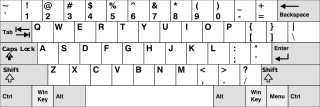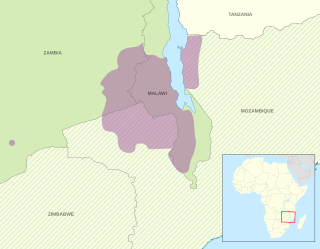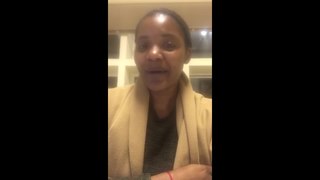 W
WMany languages are spoken, or historically have been spoken, in Zimbabwe. Since the adoption of its 2013 Constitution, Zimbabwe has 16 official languages, namely Chewa, Chibarwe, English, Kalanga, Koisan, Nambya, Ndau, Ndebele, Shangani, Shona, sign language, Sotho, Tonga, Tswana, Venda, and Xhosa. The country's main languages are Shona, spoken by over 70% of the population, and Ndebele, spoken by roughly 20%. English is the country's lingua franca, used in government and business and as the main medium of instruction in schools. English is the first language of most white Zimbabweans, and is the second language of a majority of black Zimbabweans. Historically, a minority of white Zimbabweans spoke Afrikaans, Greek, Italian, Polish, and Portuguese, among other languages, while Gujarati and Hindi could be found amongst the country's Indian population. Deaf Zimbabweans commonly use one of several varieties of Zimbabwean Sign Language, with some using American Sign Language. Zimbabwean language data is based on estimates, as Zimbabwe has never conducted a census that enumerated people by language.
 W
WAmerican Sign Language (ASL) is a natural language that serves as the predominant sign language of Deaf communities in the United States and most of Anglophone Canada. ASL is a complete and organized visual language that is expressed by facial expression as well as movements and motions with the hands. Besides North America, dialects of ASL and ASL-based creoles are used in many countries around the world, including much of West Africa and parts of Southeast Asia. ASL is also widely learned as a second language, serving as a lingua franca. ASL is most closely related to French Sign Language (LSF). It has been proposed that ASL is a creole language of LSF, although ASL shows features atypical of creole languages, such as agglutinative morphology.
 W
WChewa is a Bantu language spoken in much of Southern, Southeast and East Africa, namely the countries of Malawi and Zambia, where it is an official language, and Mozambique and Zimbabwe where it is a recognised minority language. The noun class prefix chi- is used for languages, so the language is usually called Chichewa and Chinyanja. In Malawi, the name was officially changed from Chinyanja to Chichewa in 1968 at the insistence of President Hastings Kamuzu Banda, and this is still the name most commonly used in Malawi today. In Zambia, the language is generally known as Nyanja or Cinyanja/Chinyanja '(language) of the lake'.
 W
WLozi, also known as siLozi and Rozi, is a Bantu language of the Niger–Congo language family within the Sotho–Tswana branch of Zone S (S.30), that is spoken by the Lozi people, primarily in southwestern Zambia and in surrounding countries. This language is most closely related to Northern Sotho, Tswana (Setswana), Kgalagari (SheKgalagari) and Sotho. Lozi, sometimes written as Rotse, and its dialects are spoken and understood by approximately six percent of the population of Zambia. Silozi is the endonym as defined by the United Nations. Lozi is the exonym.
 W
WTsonga or Xitsonga as an endonym, is a Bantu language spoken by the Tsonga people of southern Africa. It is mutually intelligible with Tswa and Ronga and the name "Tsonga" is often used as a cover term for all three, also sometimes referred to as Tswa-Ronga. The Xitsonga language has been standardised for both academic and home use. Tsonga is an official language of South Africa, and under the name "Shangani" it is recognised as an official language in the Constitution of Zimbabwe. All Tswa-Ronga languages are recognised in Mozambique. It is not official in Eswatini.
 W
WTswana, also known by its native name Setswana, is a Bantu language spoken in Southern Africa by about 8.2 million people. It belongs to the Bantu language family within the Sotho-Tswana branch of Zone S (S.30), and is closely related to the Northern Sotho and Southern Sotho languages, as well as the Kgalagadi language and the Lozi language.
 W
WVenda or Tshivenda is a Bantu language and an official language of South Africa. It is mainly spoken by the Venda people in the northern part of South Africa's Limpopo province, as well as by some Lemba people in Zimbabwe. The Venda language is related to Kalanga, which is spoken in Zimbabwe and Botswana. During the apartheid era of South Africa, the bantustan of Venda was set up to cover the Venda speakers of South Africa.